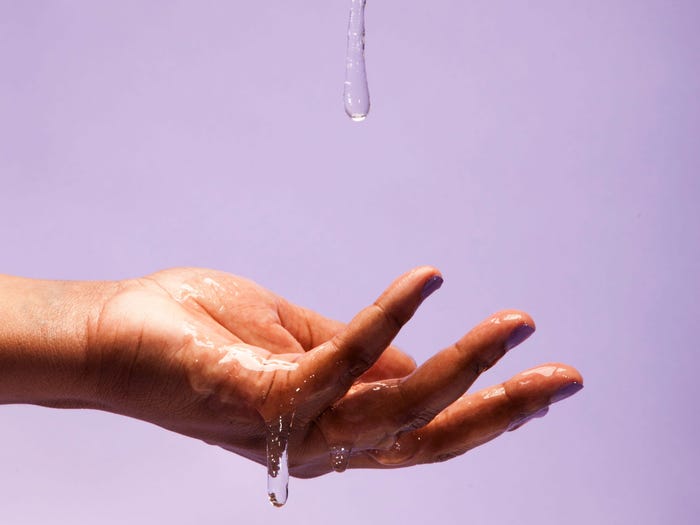Women’s health and comfort in the genital area can be affected by various conditions, including infections, skin sensitivities, hormone fluctuations, childbirth trauma, aging issues, lack of lubrication, and stress incontinence. For many, this can lead to discomfort or irritation that disrupts daily life.
However, carefully chosen self-care products can provide soothing relief, helping to moisturize, protect, cleanse, and even medicate sensitive vulvar and vaginal tissues when needed.
With a thoughtful approach, women can select products that meet their unique needs, offering support for sensitive areas without causing further irritation.
Cleansing Carefully

The vulva and vagina are delicate, with thin mucous membranes that absorb substances efficiently. This means that anything applied to these areas—whether intentional, like a cleanser, or incidental, like laundry detergent—has the potential to impact pH balance and skin health.
For instance, harsh soaps, detergents, or shaving gels containing perfumes, dyes, or chemicals can strip the protective oils and lipids from these tissues, resulting in irritation and increased vulnerability to infections.
To support a healthy environment, it’s best to use mild, fragrance-free cleansers that won’t disturb the skin’s natural balance. Look for non-foaming formulas designed to maintain a slightly acidic pH (below 4.5), which discourages bacterial, yeast, or viral overgrowth.
Cleansers specifically formulated for vulvovaginal health are ideal, as they help preserve moisture and protect sensitive areas from the kind of disruption that harsher products might cause.
Watching Out for Allergens
Everyday hygiene and clothing choices can also influence vulvovaginal comfort. Products like sanitary pads, panty liners, tampons, toilet paper, and even laundry detergents can contain chemicals or fragrances that provoke allergic reactions in some women. This can result in itching, swelling, or a rash that makes the area even more sensitive.
Choosing hypoallergenic products, such as unbleached or organic cotton sanitary products and fragrance-free laundry detergents, can minimize this risk. Wearing 100% cotton underwear is also beneficial, as it allows airflow and reduces the buildup of moisture, which can breed microbes that contribute to infections and irritation.
Understanding Lubrication Needs

Natural lubrication is essential for comfort during sexual activity, as it minimizes friction that can lead to painful chafing or micro-injuries. For many women, however, natural lubrication alone may not be enough. Factors like stress, anxiety, medications, certain health conditions, age-related changes, and hormonal fluctuations after childbirth or menopause can reduce natural lubrication.
Using a safe, non-hormonal vaginal lubricant, such as LivRing, can provide long-lasting moisture that enhances comfort during intimacy. Silicone- and water-based lubricants are generally recommended for sensitive skin, as they effectively hydrate without causing irritation.
Unlike oil-based lubricants, which can create a hospitable environment for infections, these options are also easier to clean up and don’t degrade latex condoms.
However, remember that lubricants generally wash away shortly after use, unlike longer-acting vaginal moisturizers designed to provide day-to-day relief.
Considering Vaginal Moisturizers Beyond Sex
For women who experience chronic vaginal or vulvar dryness unrelated to intercourse, vaginal moisturizers can provide deeper, longer-lasting relief.
This dryness often becomes more common with age, hormonal changes, or conditions like vaginal atrophy, where tissues thin and become more susceptible to discomfort. Unlike lubricants, which are usually applied right before intimacy, vaginal moisturizers can be used as part of a regular self-care routine.
Their emollient ingredients attract moisture into the tissues and can offer a soothing effect that lasts overnight or even longer.
A high-quality vaginal moisturizer helps supplement natural secretions and maintains a comfortable, healthy environment. This can improve the tissue’s elasticity and reduce friction-related irritation, making everyday activities more comfortable.
Key Ingredients to Look For

Choosing the right products means understanding which ingredients will support vulvovaginal health and comfort. Look for hypoallergenic gels or creams that contain a combination of beneficial ingredients:
- Vitamin E: Known for its healing properties, Vitamin E helps repair tissue damage while providing a soothing, softening effect.
- Hyaluronic Acid: This powerful humectant draws moisture into cells, providing hydration that can plump and protect delicate skin.
- Natural Plant Oils and Butters: Ingredients like aloe vera, shea butter, or cocoa butter are excellent for moisture retention, reinforcing the skin barrier and helping the tissue stay hydrated.
Hormone-free formulas are ideal for women of all ages and stages, especially those who prefer to avoid hormone-based products.
Added Tips for Comfort
In addition to selecting appropriate products, several simple lifestyle changes can help improve comfort and reduce irritation:
- Avoid fragrant feminine sprays, washes, or wipes, as these disrupt the area’s pH and natural microflora.
- Wear 100% cotton underwear, which reduces the risk of trapped moisture that can promote bacterial growth.
- Rinse off any potentially irritating chemicals or hair products after bathing.
- Use ice packs, sitz baths, or cold compresses for temporary relief from acute discomfort.
- Only use medicated creams, such as hydrocortisone, estrogen, or antibiotics, when prescribed, as these can have side effects if misused.
Good nutrition also plays a role. Staying hydrated and ensuring adequate intake of Vitamin C, zinc, and probiotics supports overall skin and tissue health.
When to Seek Medical Care

While many discomforts can be alleviated with over-the-counter products, certain symptoms may indicate a more serious issue that requires medical attention:
- Sudden vulvovaginal injury with prolonged bleeding.
- Difficulty passing urine coupled with severe pain.
- Unpleasant-smelling vaginal discharge, especially if accompanied by fever, chills, nausea, or pain.
- Blisters, warts, or lumps that don’t improve.
- Trauma or violence—immediate, comprehensive support is essential in these cases.
Conclusion
Maintaining comfort in the vulvovaginal area involves using gentle, pH-balanced cleansers and steering clear of potential irritants like fragrances, dyes, and harsh chemicals.
Choosing cotton underwear, hypoallergenic lubricants, and specialized vaginal moisturizers can make a world of difference for sensitive skin.
When it comes to chronic dryness or aging-related changes, ingredients like Vitamin E, hyaluronic acid, and plant oils offer deep hydration and help restore tissue elasticity.
Additionally, supporting vaginal wellness with healthy habits—hydration, balanced nutrition, and avoiding harsh products—complements a self-care routine.
While over-the-counter products can address many minor issues, symptoms like persistent pain, unusual discharge, or physical changes warrant timely medical evaluation. With the right products and proactive care, women can promote optimal comfort and well-being in their most sensitive areas.

